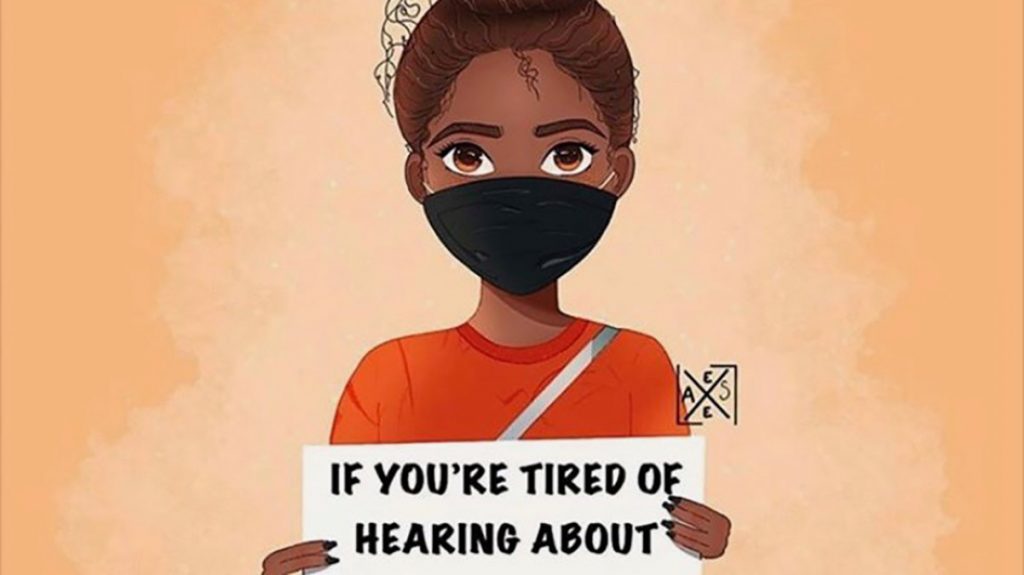As our 30 days draws to a close, you have learned more about the horrors and heartbreak of the African American experience. You have begun recognizing, reflecting, and working through white fragility, supremacy, and privilege. As you are growing and expanding as a person we want to give you some guideposts around the work you are doing and any related engagement or emotional support you might want to give to the African Americans in your life.
First, a caveat, African Americans are not a monolithic group. We share many common experiences, however, colorism, socioeconomic, educational, geographical, and familial diversity ensure that there are nuances and the breadth of our experiences is vast. This is written and based on my lived experience. If the Black people in your life experience things differently, defer to them. They are the experts on their own lived experiences.
Here are a few key points to know and reflect on before engaging with Black folks on race:
- African Americans have Endured Generational Trauma
As Dr. Bettina Love so aptly said, “Racism is traumatic because it is a loss of protection, safety, nurturance, and acceptance” and to be African American is “a life of exhaustion, a life of doubt, a life consumed with trying to survive.”
How people respond to this trauma is personal and individual. Think about your own personal heartache and trauma. Who do you discuss it with? What comes up for you when the discussion finally opens up? Would you feel comfortable talking about it at work? How about with people who are mere acquaintances?
At The AntiRacist Table, we are opening a dialogue around these issues as a way to help rehumanize what it means to be African American. Please do not expect or imply that other African Americans should do the same. As a respected individual, it is not their obligation to do so. Everyone is on their own path.
- Discussions About Race are Hard
Having race related talks with non-Black people and particularly white people, takes a great deal of vulnerability, safety, and trust. It is emotionally exhausting.
Often you are met with blank stares and awkward silences. As everyone waits uncomfortably for the moment to dissipate, the awkward, uncomfortable radio silence translates into, yet again I am invisible. What is happening to my people is of little consequence or interest to you. My heartache, the heartache of my people doesn’t matter. We don’t matter. Our lives don’t matter. It stings. It feels like a betrayal. How do you relate to people who can’t see your humanity? Worse yet, what happens when you are greeted by anger?
- ACTION — Listen, Learn, and Empathize
Listen and learn. Resist the urge to tone police and gaslight. Racism and discrimination are heavy and emotionally charged issues. Allow Black people to be human beings with emotions. Do not discount the very real lived experience you hear because you don’t like the tone or you don’t like the message. Black people have been assigned a negative group identity of being angry and violent. We are expected to be robots about an issue that most of us have carried around like a giant albatross for most of our lives. We have to stifle our humanity. We have to wear the mask as Paul Laurence Dunbar wrote so poignantly in 1896.
We wear the mask that grins and lies,
It hides our cheeks and shades our eyes,—
This debt we pay to human guile;
With torn and bleeding hearts we smile,
And mouth with myriad subtleties.
Why should the world be over-wise,
In counting all our tears and sighs?
Nay, let them only see us, while
We wear the mask.
We smile, but, O great Christ, our cries
To thee from tortured souls arise.
We sing, but oh the clay is vile
Beneath our feet, and long the mile;
But let the world dream otherwise,
We wear the mask!
Paul Laurence Dunbar, “We Wear the Mask.”
from The Complete Poems of Paul Laurence Dunbar.
Sadness, rage, hopelessness, loneliness, depression, fear, distraction, overwhelm, and worry, are some of what comes up for me on race. The sense of urgency is profound. There is rage and deep anger. That may make you uncomfortable. Get comfortable being uncomfortable. Remember that our feelings are ours. No one has the right to tell someone else how or what to feel.
If you never see us upset or angry does that mean that we’re fine? No. Most people cannot permanently inhabit a place where we look at and think about racial oppression every day. There are days when I don’t want to think about it or talk about it–I want to just be human, with a capital H, meaning a human with “regular non-racial” problems, where I can marvel in the joy of being alive, taking in the beauty of a sunset, or enjoying the sound of my son’s roaring laughter.
And still, for many, it simply is too painful to share these feelings outside of the safety of our own spaces. That doesn’t mean that the pain, anguish, and hurricane of emotions isn’t there. It is. You just can’t see it.
During these conversations is where you get to exercise your empathy muscle. Tap into what it feels like to be alone, unseen, unheard, afraid, sad… whatever you imagine the speaker is experiencing. When you share something hard it feels really good when the person listening responds with empathy.
The difference between sympathy and empathy is that sympathy is feeling badly for someone from the removed perch of safety, sitting next to pity. Empathy on the other hand is being with the person in their pain by tapping into when you felt a similar way, so that you can connect with what the other person is feeling. These needs and feelings lists reveal an important truth–needs and feelings are universal. What that means is that there isn’t a feeling or need that I’ve had or you’ve had that another person hasn’t experienced. Draw from that. Watch Brené Brown’s short on empathy for a quick refresher on how empathy works.
- ACTION — Do Some Honest Self-Reflection
With the new knowledge and insight you have, reflect on your friendship(s). Have you been a sh!tty friend? Or worse yet, have you been a sh!tty person? Own it and apologize. Give a proper apology. A heartfelt apology. If you need some tips on a proper apology read this. The best policy is to accept responsibility, ask forgiveness, and show how it won’t happen again. Oprah has quoted Maya Angelou as telling her, “when you know better, you do better.” We all have the capacity to change. Do what you can to remedy the harm. On the topic of Racial Reckoning you also need to show up and step up but more on that next.
- ACTION — Check Yourself, Respect Our Boundaries, Show Compassion, and Stand up for Humanity
It is your job to educate yourself. Please don’t give your Black friend what should be your own emotional labor. It’s not their job to relieve white guilt and white fragility. This image captures it perfectly…
Be a good friend. The step after empathy is compassion. Compassion is empathy with action fueled by a desire to help. As Jamil Zaki explains, empathic concern is “a motivation to improve someone else’s well-being. This is the piece of empathy that most reliably sparks kind action” and compassion is “the desire to free others from suffering.” The War for Kindness, Jamil Zaki
Be an ally. Find a way to channel the empathy and compassion you have into doing something for this issue. That might look like talking to people in your circle who aren’t on board with Black Lives Matter. As Dena Simmons said, “I need you to fight for my humanity.” Silence is not an option.

